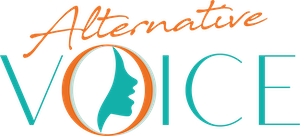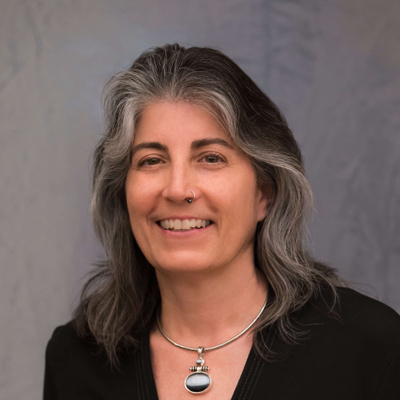When I was a little kid, I was afraid of a lot of things that as an adult I don't bat an eyelash at. Growing up in Pennsylvania, we seemed to have a lot of thunder and lightning storms, so strong the windows and doors of our house would often fiercely rattle. I remember when those startling loud booms roared and lightning cracked all around the sky, my mom would always tell me the angels were bowling, and the loudest crashes meant they got a spare or a strike! Then we'd laugh with glee at all the fun the angels must be having, and suddenly those storms weren't so scary.
Same thunder, same lightning, different perspective.
Life's a lot like that, only our sobered adult viewpoint now tells us that many things, which may cause fear, are actually things of very valid concern (including lightning of course). And the Age of Information we live in today is the ultimate double-edge sword: we have rich opportunities to access incredible amounts of diverse information, and simultaneously we easily can become overwhelmed and lost in cyberspace. This is especially true of many headlines we find in today's current news, instilling anxiety in the best of humanity. But when we operate from panic, we can't think clearly to begin solving the problems we're facing.
On one hand, as responsible citizens—caring about family, friends, colleagues, and the world—we want to stay abreast of what's happening, nearby and across the globe. But the saturation of visual images, data, and viewpoints is staggering. Then throw in some fake news, sprinkled with random misinformation, and you've got Anxiety Soup in the making.
Fear cripples. Yet it's a very human and automatic response to sometimes be initially afraid of certain things, and we know our built-in "fight or flight" mechanism can literally save lives. But at other times, that same fear-based reaction to fight or flee actually causes worse damage than choosing to address a situation head-on and proactively do what we can to help things evolve for the better.
Positive Fuel
Changing our mind is a form of truly helping both others and ourselves. And taking good care of ourselves is very different than indulging our personal lower desires. Just like we need to eat well and exercise to care for our bodies, we equally (and sometimes more so) need to fuel our minds with positive and inspiring ideas and thoughts, and rest our minds with meditation and recreation. We also need to fuel our hearts with laughter and meaningful relationships, along with other kinds of healthy emotional support.
Most of all, we need to fuel our souls deep inside, with communion, prayer, and worship, and to study and follow the wisdom of true spiritual elders and sages we can learn from, in history and contemporary times. If we don't responsibly take care of ourselves in balance—our whole self, body, mind and soul—we won't have the stabilization needed to truly reach out and care for others, because it's ever so true, "you can't give away what you don't got."
Building Bridges
Right now what the world needs is for everyone to get and stay healthy—not just physically, but also mentally, emotionally, and most of all spiritually— so we can be there for those who need us, and ultimately launch into the future together, living as true global citizens, for the first time in history. That's a much bigger paradigm than the nationalism and ethnocentrism many of us grew up enculturated in, and to succeed it will require building bridges, not walls.
Hope heals. The Bible wisely teaches, "Where there is no vision, the people perish."1 And so how do we cross the bridge from fear to hope? — especially when we can sometimes feel surrounded by doom and gloom?
Well for starters, it's important to realize it's a bridge we will have to continually walk across, because invariably sooner or later doubt creeps back in, and we find ourselves temporarily dancing with anxiety and fear again. So realizing it's a new habit we have to build, and setting ourselves to task knowing it's a journey (not a destination), is a good start.
Mind And Heart
It helps me to remember a concept that a wonderful psychologist and counselor once explained to me: our minds process things exponentially (like 2 x 2 = 4, 4 x 4 = 16, 16 x 16 = 256, and so on). But our hearts (and thus our emotions) learn things arithmetically (hence 2 + 2 = 4, then 4 + 4 = 8, then 8 + 8 =16, and 16 + 16 = 32, etc.).
Hence, you can see the vast gap between our mind (which quickly reaches 256) and our emotions (simultaneously lingering back at only 32, within the same time interval). That's because we can intellectually know about something on deeper and expanded levels, yet our heart is still left in the dust, rudimentarily processing situations and experiences. And in the midst of all that, we sometimes don't have the luxury of our emotions catching up; sometimes we have to act immediately, because certain situations call for it.
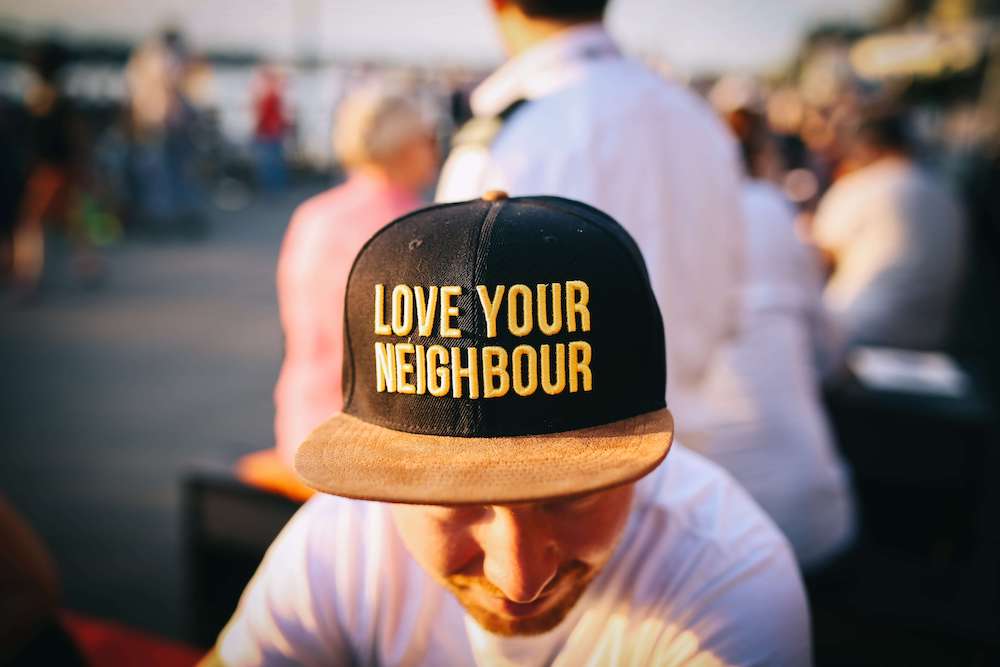
To make that leap and bridge the mind/heart gap, it's a leap of faith, and one we must take holding on to God's hand, because He is the great Unifier. And even when circumstances may truly be dire and irreversible, we always have the choice (hard as it may be at times) to view things with a more positive approach, using expanded spiritual perspectives.
The URANTIA Book teaches, "Anxiety must be abandoned. The disappointments hardest to bear are those which never come."2 Richard Bach, author of Jonathan Livingston Seagull, said: "Every problem has a gift for you in its hands." Buddha taught people to see (and then embrace) the unseen opportunities presented within each of life's circumstances, no matter how challenging. And of course it's key to have "an attitude of gratitude," a phrase coined by endocrinologist Hans Selye.
The Bible explains it this way, "In everything give thanks."3 Note that it doesn't say "for everything give thanks" but rather "in everything," because God doesn't promise us a bed of roses in life. Instead He promises to walk through the fires of life's trials and hardships with us, to strengthen us and give us wisdom, expecting us to walk in humility and trust in Him.
In the face of great loss, pain, or suffering, it takes very deliberate effort to change our minds to see any good therein and find the opportunities nested inside, yet often these trials can be our greatest growth and maturation times. Difficulties strengthen us, especially if we embrace the hardships with fortitude. We have a responsibility to do our best to keep our head above the waters of adversity, so we can reach out to others whose need is greater than our own, no matter what we're facing.
Even in the midst of horrific situations and genuine catastrophes, staying calm and centered in our relationship with God is the only way to move forward. The very bottom line in facing any fear is bona fide faith—that faith in God and His ultimate loving care that leads to "a peace that passes all understanding." 4
12-Step Programs (like Alcoholics Anonymous/A.A.) have some good slogans to help along on life's journey, including "Your feelings are real, but they're not necessarily reality." Another is the acronym: F.E.A.R. = False Evidence Appearing Real. They illustrate how important it is to intelligently assess the actual amount of truth and facts of any given situation that we may find ourselves in or impacted by to build a solid foundation.
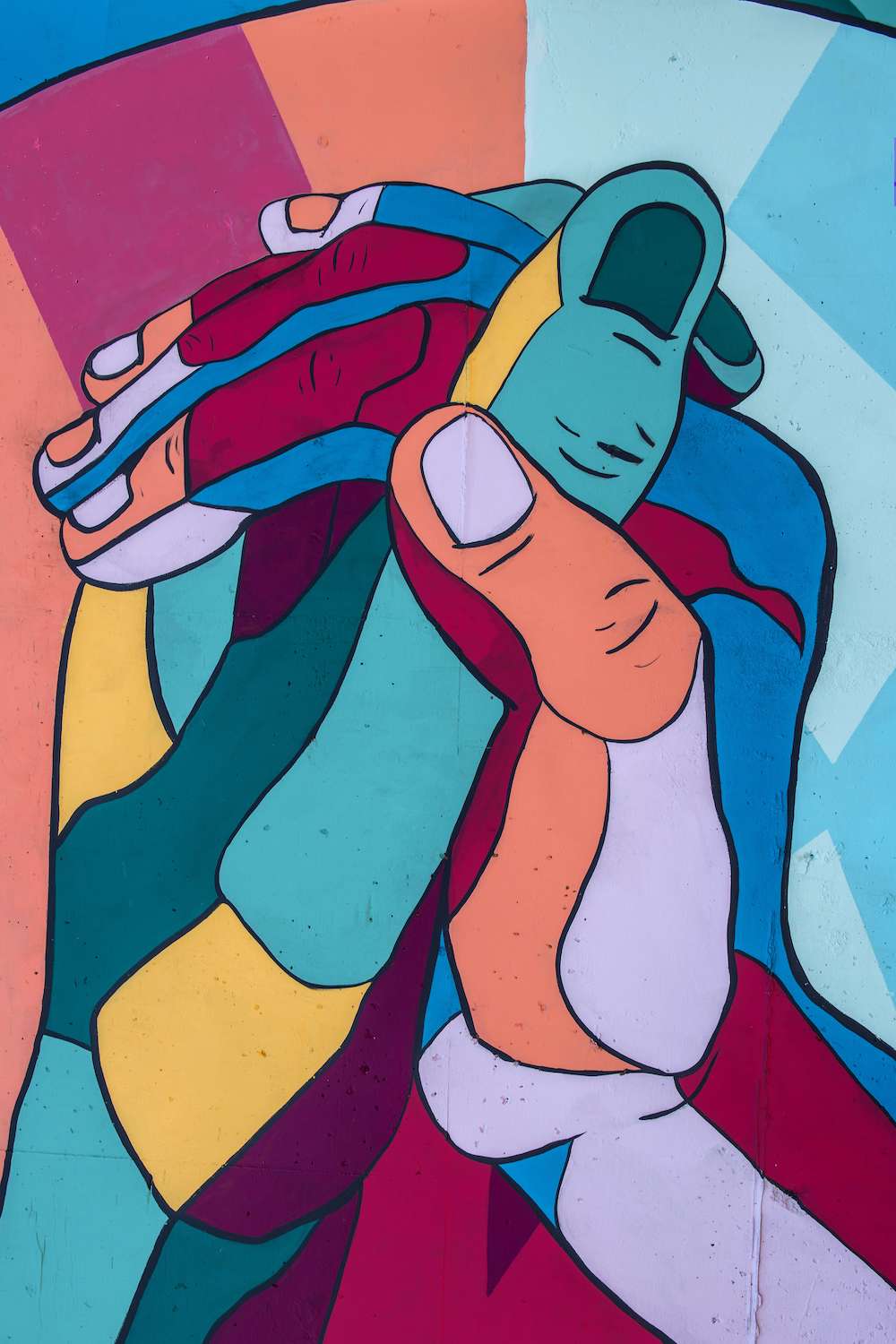
Then noticing how we allow our emotions to color our perspective becomes crucial if we're going to overcome fear. Sometimes getting other people's opinions and insight—from people we truly respect and trust to be honest—can help us find balance in our own hearts and minds.
There's a modern psychology term that hits the nail on the head in relation to helping us gain a balanced perspective and see how our minds unfortunately can so easily head us in the wrong direction, if we don't redirect our thoughts. It's called catastrophizing.
Catastrophizing is a way of thinking called a "cognitive distortion." A person who catastrophizes usually sees an unfavorable outcome to an event and then decides that if this outcome does happen, the results will be a disaster.
— Medical News Today.com
Without having spiritual balance and using intelligent reasoning, even mulling over real-life dire things (which can cause true fear) can quickly become very unproductive, especially when our emotions get in the driver's seat, magnifying all the worst-case possible scenarios.
There are many ways to shift gears in our minds, from prayer and meditation, to sometimes just setting our hands to the task and work right in front of us, to rest and enjoying healthy recreation, and much more. Personally, I find laughter and positive humor are wonderful releases that bring levity into my moments, when I lose perspective and start catastrophizing on something that's actually just me overthinking or making a mountain out of a mole hill. Comedian Bob Newhart did a wonderful short skit, using humor, yet clearly depicting the results of catastrophizing, offering his simple yet profound message to simply "STOP IT!"
Of course when we face real crises, even a true catastrophe or world crisis, if we allow our thoughts to fall into catastrophizing, we become crippled and can't help anyone.
Human Nature
In human nature (and our often emotional immaturity), there can be an addictive element, where we subconsciously become addicted to the adrenaline rush and intensity of catastrophizing. It's a double-edge sword where we hate the stress and anxiety we create inside ourselves, but somehow the sheer familiarity of those emotions (painful as they are) keeps us hooked in a vicious hamster wheel of self-perpetuated fear and worry.
Sometimes we find much comfort in the simple familiarity of an experience (even some negative ones), because the alternative is perhaps even more frightening—venturing out into the unknown arena of change and trying something different, which could potentially be even worse and/or we fail.

I used to think courage meant you are not afraid. However, one of the definitions of courage is "feeling the fear and doing it anyway." For example, any sane person, when running into a burning building to save someone, would surely experience some initial fear. However, their desire to help another human being overcomes their concern for their own safety.
We call those people heroes. And we give them earned honor for their extraordinary efforts and acts. But look deeper at that word "extra-ordinary." Those heroes were once simply ordinary folks, just like you and me, who did something extra, something beyond themselves and the ordinary, and in the process became extraordinary.
Nelson Mandela took an extremely challenging personal situation of being imprisoned and turned it into something extraordinary in his choices of how to perceive his circumstances and captors, etc. Ultimately the people of his country, who eventually elected him President of South Africa, recognized him.
Humanity's Interconnectedness
We all know what it feels like when we have a deep need or ache, and someone kindly reaches out to us—be it with the simplest of gestures (like making us a cup of tea, or buying us a pair of much-needed new shoes) to bigger helpful acts (like leaving a waitress a tip of several thousand dollars or giving someone a car).
So when we're faced with life's challenges—in whatever shape, size, circumstances, and timing—remember to always strive to be a real friend to someone else, and adopt the role of being a loving daughter or son, mother or father, or grandparent, etc. to someone who doesn't have one (or have one living nearby). And even consider how you can help and serve as some kind of a human-rights advocate and minister or coach or counselor role in someone's life, even by simply offering a few kind words of encouragement and inspiration or assisting them with their physical needs.
And at the same time, be sure to continually learn and study all you can, read, listen to, and seek out the inspirational words and teachings of others, because we need to constantly refuel ourselves and expand our minds. I personally find it helpful to saturate my mind (and thus my heart and emotions) with a wide range of teachings from the truths found in many of the world's different religions, as well as "life coaches" and other inspiring individuals from all walks of life, such as Jocko Willink, Tony Robbins, Susan Powter, and many others.
Plus I find it valuable to gain insights from various angles and approaches—including athletics and sports concepts, zen practices and minimalism lifestyles, addiction recovery, military-training backgrounds, spiritual and biblical teachings, etc.—because they each help broaden my mindset and yet all with the same theme of improving life and helping others, including changing ourselves to become better people.
You can subscribe online to any variety of daily inspirational and motivational In Box messages, blogs, mediations, podcasts, and more to assist in keeping your mind focused on a positive perspective and learn how others successfully approach and deal with the curveballs of life's ups and downs and sometimes knockouts.
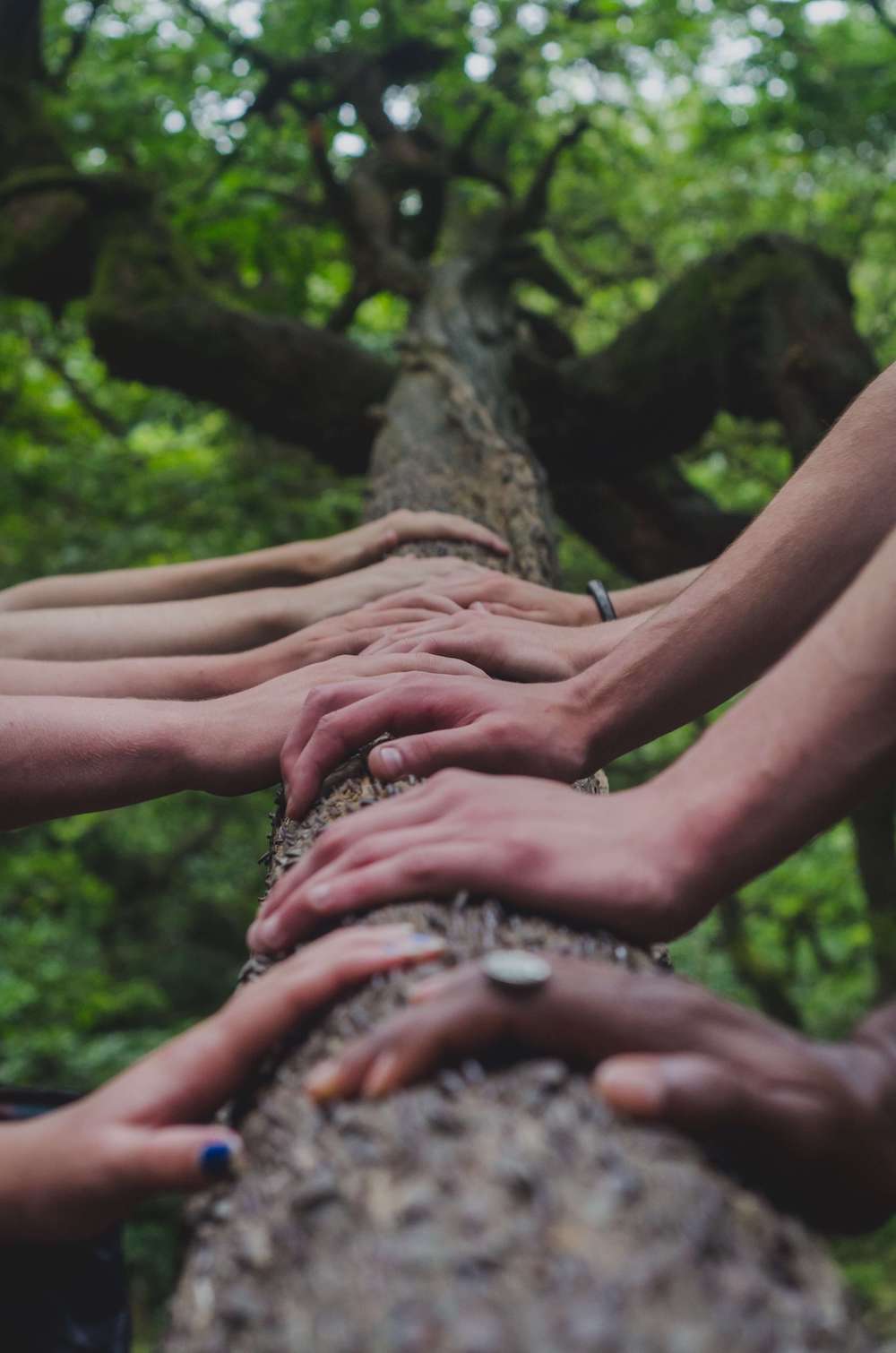
A few that I especially appreciate include perspectives presented by Truthbook, Jocko Willink, Becoming Minimalist, Proverbs 31 Ministries, Zen Habits, Hazelden Betty Ford Foundation, and No SideBar. Of course there are many others you may benefit from as well.
However, for me by far the two greatest teachers I ever found—who I have vastly learned the most from about how to deal with life and move forward in service to humanity—are spiritual leaders Van of Urantia and Niánn Emerson Chase, the Co-Founders of The University of Ascension Science and The Physics of Rebellion.
You can hear their teachings, anywhere in the world, on KVAN Radio (online at: kvan.fm) and on YouTube. From their wisdom and insight, I have gained the best understanding of the present condition of our world and what we each personally can do to help create true positive global change.
I highly recommend the books The Cosmic Family, Volume 1 and Volume 2, by Van of Urantia, along with many other books and articles written by him and Niánn Emerson Chase. Learn more about their humanitarian work through several nonprofit organizations they founded, including Global Community Communications Alliance.
Taking Care Of People — Serving Others
In the midst of prayer, I once heard very clearly a simple yet profound thought run through my mind (and I know it came from an angel's inspiration and not my own "thinking"):
Service is the salve that soothes the soul.
We all have something we can give—the widow's mite, as scripture calls it—and when it's heartfelt and given or done with good intentions, we can really bless others. So anytime fear or anxiety start to creep in or your mind starts catastrophizing (about imaginary or real scenarios), look around you and do anything you can to help someone else—just anything at all, big or small, that simply serves another person, because truly love is the answer. And serving someone else with love puts us into the "spiritual economy" where we help others and then the angels and God help us. Saint Francis explained it perhaps the most eloquently of anyone:
Lord, make me an instrument of your peace
Where there is hatred, let me sow love
Where there is injury, pardon
Where there is doubt, faith
Where there is despair, hope
Where there is darkness, light
And where there is sadness, joy
O Divine Master, grant that I may
Not so much seek to be consoled as to console
To be understood, as to understand
To be loved, as to love
For it is in giving that we receive
And it's in pardoning that we are pardoned
And it's in dying that we are born to Eternal Life
~ Amen
1 Proverbs 29:18
2 The URANTIA Book, Paper 48, Section 7, Paragraph 21
3 1 Thessalonians 5:18
4 Philippians 4:7
